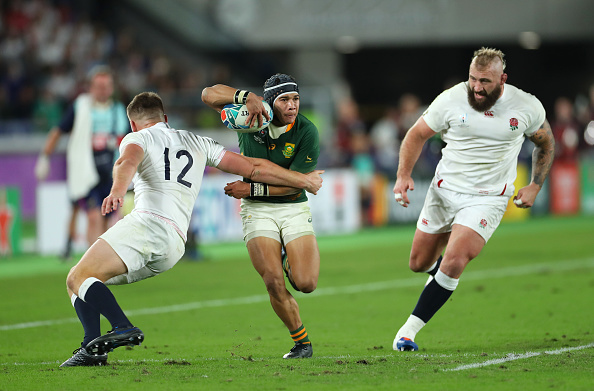While a lot still needs to happen, SA Rugby’s pivot to the north would have a profound impact on both hemispheres, writes JON CARDINELLI.
A move to the north has been on the cards for some time. SA Rugby appeared to take the first significant step when it entered two of its franchises – the Cheetahs and the Southern Kings – into an expanded Pro14 competition in late 2017.
The governing body made it clear that it hoped to send more teams to Europe in future. There were rumours that a couple of the big franchises – the Vodacom Bulls and Sharks – would join the Pro14 party sooner rather than later.
What’s never been clear, however, is whether the Springboks, the franchises or indeed every team involved would swap the Sanzaar competitions for those in the north.
ALSO READ: Boks to join Six Nations
Even now, in the wake of the Daily Mail’s claim that the Boks will join an expanded ‘Seven Nations’ tournament in 2024, we’re left to wonder whether South Africa would attempt to compete in both the Seven Nations and the Rugby Championship on an annual basis.
SA Rugby has always valued the Rugby Championship, and particularly the two clashes between the All Blacks and Boks. It may be easy to walk away from a Vodacom Super Rugby tournament that’s lost its shine and is fraught with logistical and player-management challenges. It won’t be so easy to turn away from an annual match up against New Zealand that is deeply important to the players and fans.
It’s believed that SA Rugby will make a move at some point. Whether they commit to taking all their teams to Europe or not, the move will have a profound impact on the rugby structures in both hemispheres.
The next broadcast deal runs from 2021 to 2025. If SA Rugby commits to another five years with Sanzaar – in the Super Rugby and Rugby Championship tournaments – they will only be free to explore the expanded Seven Nations option in 2026.
Would the franchises also head north in that event? Would we see the Bulls, Lions, Sharks and Stormers joining the Cheetahs and Kings in a further expanded Pro18 ahead of the 2026-27 season?
Would we see a South African team or two eventually qualifying for a subsequent European Cup competition and tackling club giants like Exeter, Saracens, Toulon or Racing92? South African teams would have to tour the United Kingdom and Europe, but the travel would be significantly less taxing than on previous sojourns to Australasia and Asia in the Super Rugby tournament.
ALSO READ: Erasmus linked to England top job
With the focus entirely on Europe, the director of rugby and Bok coach would have the benefit of monitoring all the South African players of interest – whether they are playing for South African or European clubs. We wouldn’t have a situation where assistant coach Felix Jones is deployed to monitor South Africans playing in Europe while Rassie Erasmus and Jacques Nienaber track the locals in Super Rugby – as is the case now.
The Six Nations has surpassed the Rugby Championship as the world’s best annual international tournament. While it’s been particularly competitive in recent years, there is a feeling up north that South Africa – the 2019 world champions – will bring something new to the mix.
Would South Africa’s inclusion come at the expense of Italy, a team that has battled to compete for the better part of its 20-year tenure in the tournament? It’s something to consider when assessing the structure of the tournament and the international window. What we know is that English and French clubs want more access to their players, not less.
South Africa’s departure from Sanzaar – in any shape or form – would have a massive impact on southern-hemisphere rugby as a whole. A loss of revenue by New Zealand Rugby during a Super Rugby tournament that’s reduced to a Trans-Tasman/Pacific island showpiece may see more All Blacks heading abroad. In fact, we may see a lot more uncapped Australians, New Zealanders and South Africans competing in the expanded northern-hemisphere competitions.
We’re unlikely to see such radical changes in the next five years. Beyond that, such changes will benefit the northern hemisphere as well as SA Rugby.
Photo: Shaun Botterill/Getty Images





